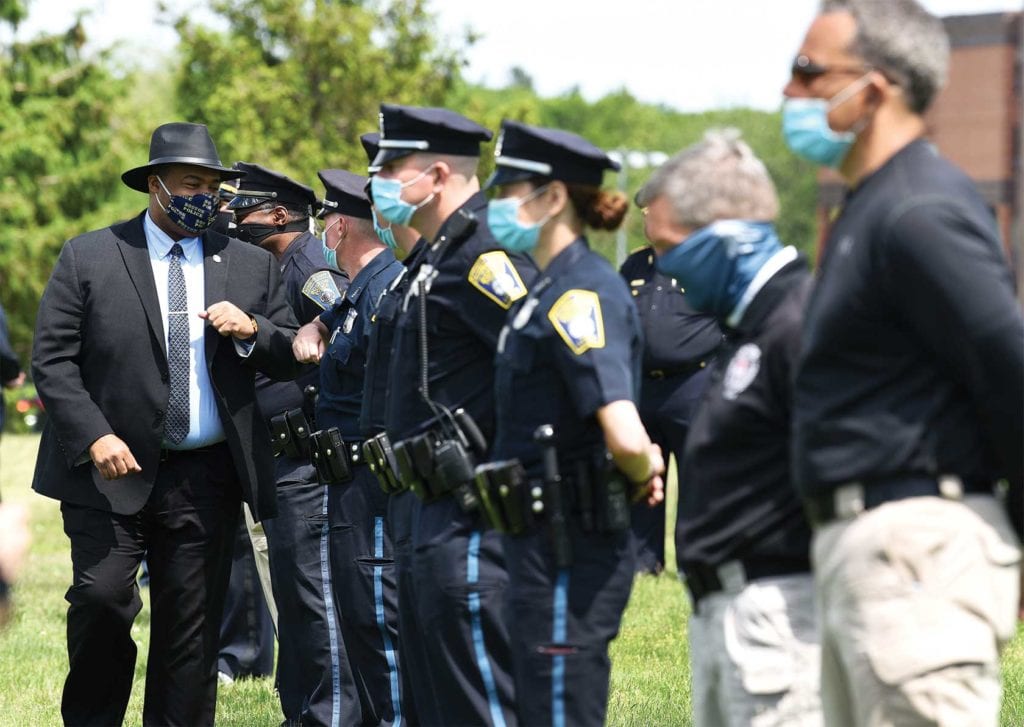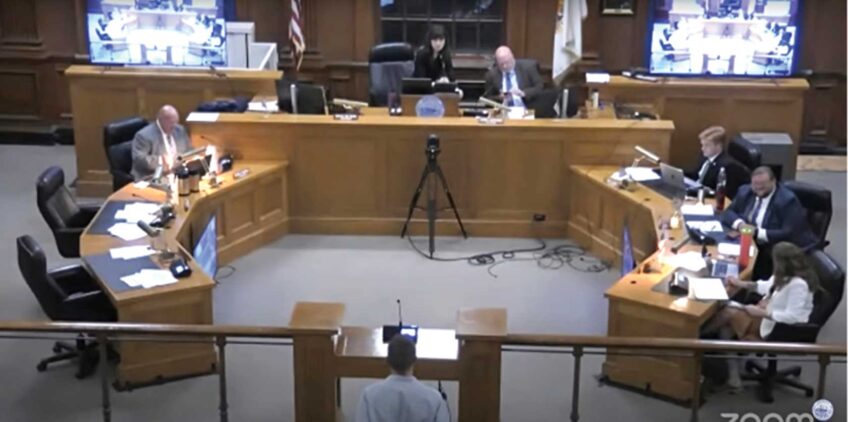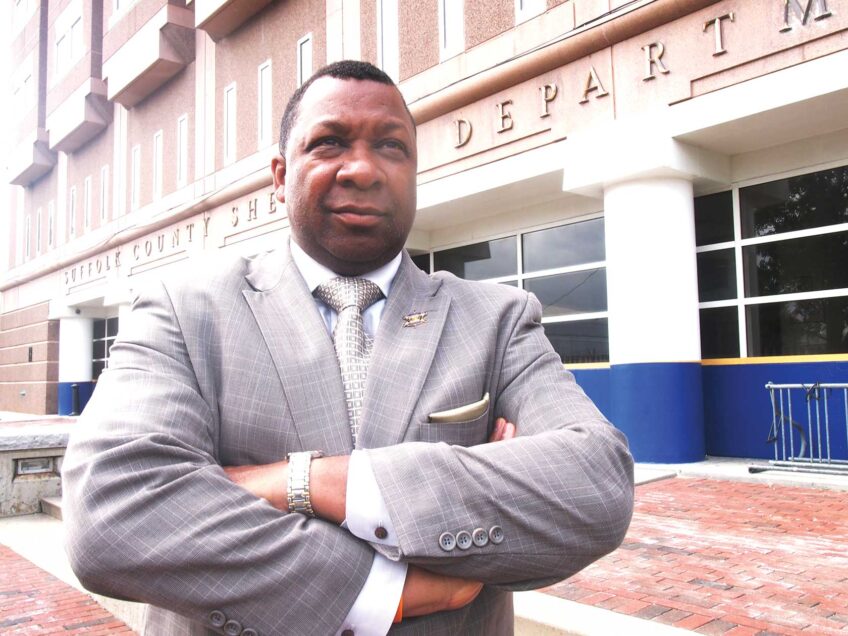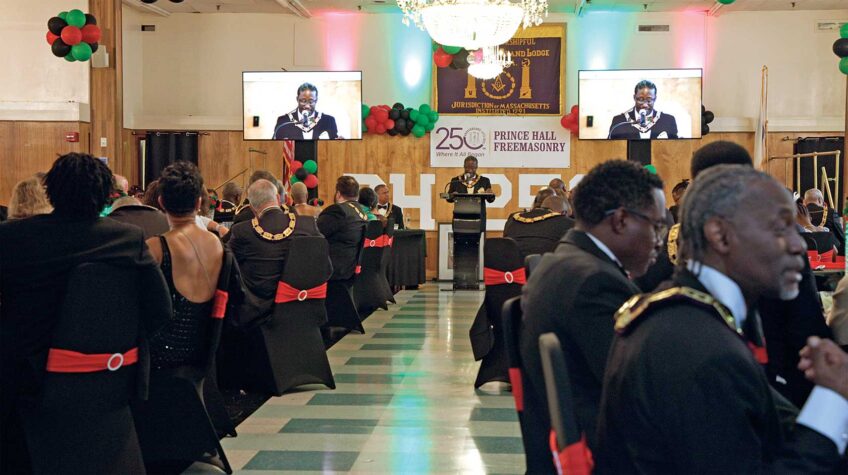Black officers seek change in promotion test
A call to end controversial police exam for promotions

City Councilor Andrea Campbell and labor lawyer Shannon Liss-Riordan joined members of the Massachusetts Association of Minority Law Enforcement Officers (MAMLEO) Tuesday to call for an end to the use of a controversial exam for Boston Police Department promotions. The test was ruled discriminatory once in 2015 and again in 2017 at the federal level.
“The city of Boston has spent hundreds of thousands of dollars if not more in taxpayer money defending in court an exam that doesn’t test who has the best qualifications to be a leader in the Boston Police Department,” said Liss-Riordan, a labor lawyer who spoke at the press conference, which was held at City Hall Plaza.
Liss-Riordan says she has been representing officers in this case for over 10 years.
“Soon, Boston is going to have to make a very important decision. It is going to be deciding whether to appeal that ruling by the court,” said Liss-Riordan.
Campbell and Liss-Riordan cited the recent demonstrations and the recent police killings. They said their goal is to rid Boston institutions of “racist and exclusionary” policies that they were built on. While many activists and elected officials across the country are calling on local governments to defund and abolish police departments, Campbell stressed the importance of reform.
“Our advocacy around transforming police must be twofold. We must seek long term solutions to change policing as we know it, and we need to take action on things we can do right now,” she said.
MAMLEO President Eddie Crispin stressed that police officers are fighting their own internal battles with discrimination. He, Campbell and Liss-Riordan called on Mayor Martin Walsh to make good on his recent promise to fight racism in Boston.
In a 2015 ruling against the city’s use of the test, U.S. District Court Judge William Young wrote, “The near exclusion of any critical skills and abilities meant that a high score … simply was not a good indicator that a candidate would be a good lieutenant.” The BPD did change the exam afterward (the original was created in 2008), but the five sergeants promoted the next year were all white.
Paul Joseph, a former MAMLEO president who joined the BPD in 1989, was promoted to sergeant in 1992 and was on the list for lieutenant for 15 months, but was never promoted. He compared the BPD in the 2000s to a slave plantation with no potential for growth.
“We were known for, ‘You’re taking my nephew’s job, you’re taking my son’s job.’ As if the lieutenant position was theirs … and we had no right to it,” he said.
Police promotional tests are used to determine an officer’s position on the list of potential promotions. The original 2008 test consisted of 100 multiple-choice questions, which made up 80% of the score. Other factors include an education and an experience rating — a rating officers can only receive if they pass the multiple choice portion by 70% or higher.






